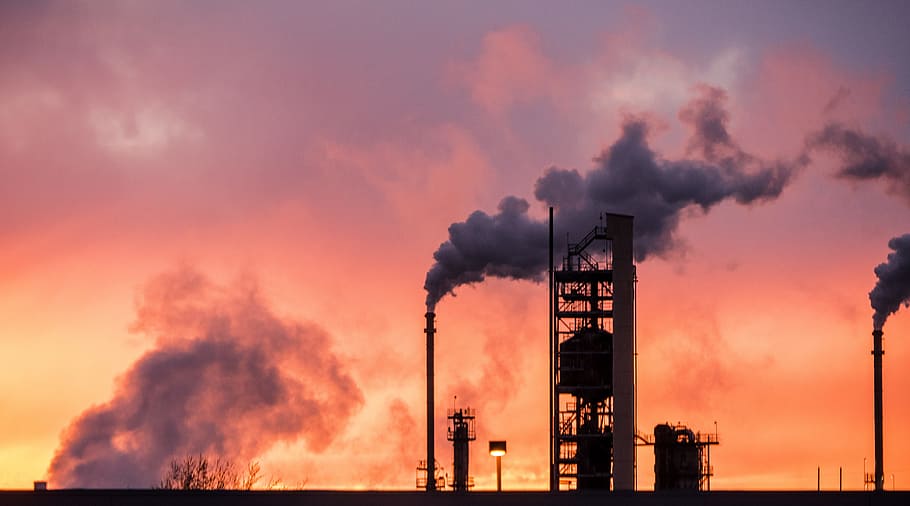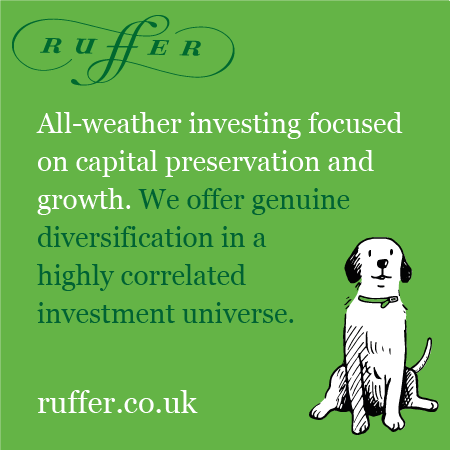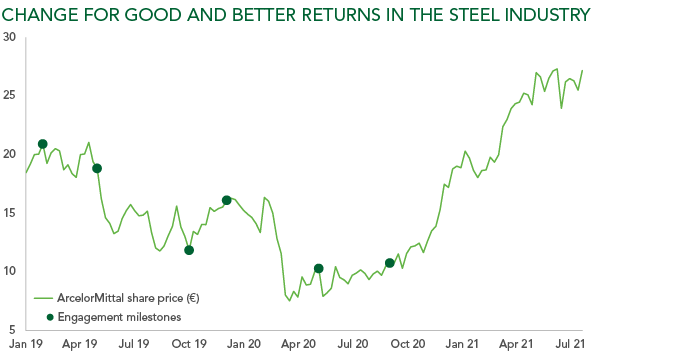ESG engagement over exclusion: How you can do well by doing good

Floods in Europe, forest fires in North America and Australia—the impact and tragic results of climate change are starting to dominate the news.
The actions taken by governments, companies and individuals in the next decade will be crucial if we are to limit the rise in global temperatures. The option of doing nothing has now passed, not just for the environment, but for companies and investors too.
Ruffer, like most investment managers today, sees environmental, social and governance (ESG) considerations increasingly contributing to the risk and opportunity of any investment. We integrate ESG factors into every aspect of our investment process, from research to portfolio construction.
However, we believe engagement, rather than exclusion, is the key to delivering both change for the good and better returns for our clients. Blanket, unthinking exclusion of environmentally ‘difficult’ companies leaves them free to continue poor practices and does nothing to improve global environmental outcomes.
This is particularly important with climate change.
Chart source: Ruffer, ArcelorMittal, FactSet, as at 27 July, 2021
Take the example of ArcelorMittal, Europe’s largest steel producer. Steel production is carbon intensive. It uses metallurgical coal to reduce the iron ore into iron, and subsequently to steel. Some funds just exclude investment in such companies—but you need steel to make wind turbines and other renewable technologies. The infrastructure needed to transition to a low carbon economy will need a lot of steel. And steel can be reused and recycled (unlike many other materials, such as cement).
 Our view was that encouraging one of the most carbon-intensive companies in our portfolios to prioritise reducing emissions would benefit the environment and reduce the climate risk discount attached to the company. And as a founding member of Climate Action 100+ we could collaborate with others to increase the pressure.
Our view was that encouraging one of the most carbon-intensive companies in our portfolios to prioritise reducing emissions would benefit the environment and reduce the climate risk discount attached to the company. And as a founding member of Climate Action 100+ we could collaborate with others to increase the pressure.
We have engaged with ArcelorMittal since early 2019, co-leading the global Climate Action 100+ team in talks with the management. At the AGM in early 2019, and at private meetings, we persuaded the company to set ambitious targets to reduce its greenhouse gas emissions.
The result of this engagement? In December 2019, ArcelorMittal committed to reduce its emissions in Europe by 30% by 2030 and be net-zero by 2050. In September 2020, the company committed to be net-zero across its global operations by 2050. And in July 2021, the company announced it would make its Sestao plant in Spain the world’s first full scale zero carbon emissions steel plant in 2025.
Only active engagement can achieve this.
There were concerns about the success of engagement in the past. But our experience shows effective engagement is a powerful tool in delivering better environmental outcomes. Meanwhile holding shares in such companies through the transition from discounted ‘untouchable’ to ‘ESG darling’ can be beneficial to investors too.
Engagement milestones
Early 2019
Ruffer joined the Climate Action 100+ working group on ArcelorMittal and became joint engagement lead
May 2019
Lakshmi Mittal, chief executive, confirmed the company would join the Energy Transitions Commission and publish their first climate action report
October 2019
Added to holding
December 2019
ArcelorMittal announced targets to reduce their European carbon emissions by 30% by 2030, and to be carbon neutral in Europe by 2050
May 2020
With increased confidence in the company’s strategy we supported their capital raise, increasing our position. The shares have gained more than 100%
September 2020
ArcelorMittal announced target of being carbon neutral by 2050 across their global operations
 Past performance is not a guide to future performance. The value of investments and the income derived therefrom can decrease as well as increase and you may not get back the full amount originally invested. Ruffer performance is shown after deduction of all fees and management charges, and on the basis of income being reinvested. The value of overseas investments will be influenced by the rate of exchange.
Past performance is not a guide to future performance. The value of investments and the income derived therefrom can decrease as well as increase and you may not get back the full amount originally invested. Ruffer performance is shown after deduction of all fees and management charges, and on the basis of income being reinvested. The value of overseas investments will be influenced by the rate of exchange.
The views expressed in this article are not intended as an offer or solicitation for the purchase or sale of any investment or financial instrument, including interests in any of Ruffer’s funds. The information contained in the article is fact based and does not constitute investment research, investment advice or a personal recommendation, and should not be used as the basis for any investment decision. This document does not take account of any potential investor’s investment objectives, particular needs or financial situation. This document reflects Ruffer’s opinions at the date of publication only, the opinions are subject to change without notice and Ruffer shall bear no responsibility for the opinions offered. Read the full disclaimer.







